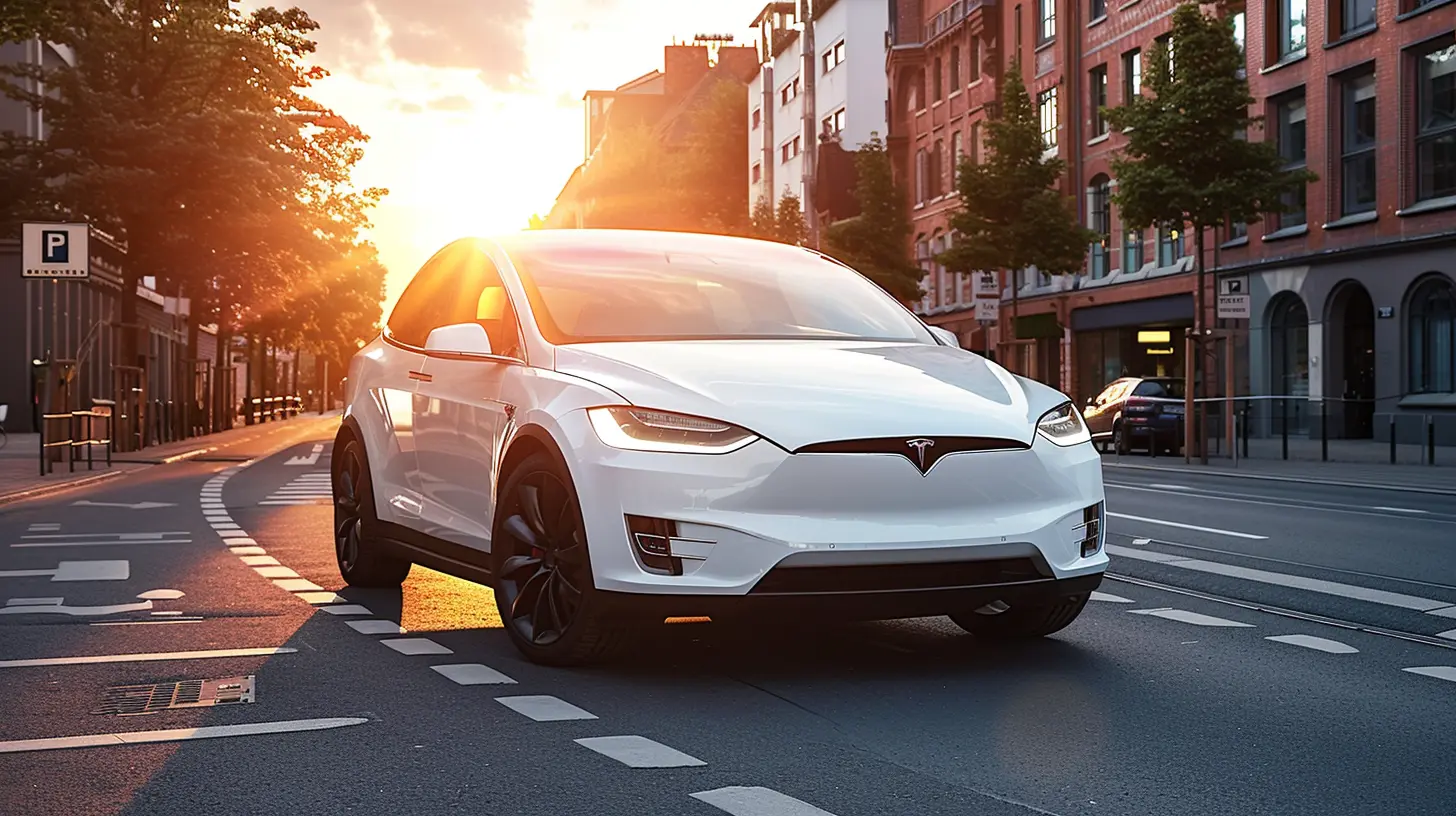4 April 2025
When it comes to acquiring a vehicle for your business, one question always comes up: should you lease or buy? It’s not just about upfront costs or monthly payments—it’s also about tax savings. Both options come with their own set of financial benefits, but the real question is: which one will help you maximize your tax deductions?
In this guide, we’ll break down the tax advantages of leasing versus buying a business vehicle, so you can make the best decision for your company's bottom line.

Leasing vs. Buying: The Basics
Before diving into tax benefits, let's quickly go over the fundamental differences between leasing and buying.Leasing a Business Vehicle
Leasing is like renting. You make monthly payments for a set period (usually 2–5 years), and once the lease term ends, you either return the vehicle or have the option to buy it.Pros of Leasing:
✅ Lower monthly payments than financing a purchase✅ Newer vehicles with the latest technology and safety features
✅ Less commitment—easier to upgrade to a new car in a few years
Cons of Leasing:
❌ Mileage restrictions (exceeding them results in extra fees)❌ No ownership equity—you're essentially renting
❌ Potential penalties for excessive wear and tear
Buying a Business Vehicle
When you buy a vehicle, you either pay in full or finance it with a loan. You own the car outright once the loan is paid off.Pros of Buying:
✅ Full ownership—no restrictions on mileage or customization✅ Eligible for long-term tax deductions through depreciation
✅ No ongoing lease payments after loan payoff
Cons of Buying:
❌ Higher upfront costs❌ Risk of depreciation affecting resale value
❌ Higher repair costs over time
Now that we've covered the basics, let's get into the real reason you're here—tax deductions!

Tax Deductions: Leasing vs. Buying
Both leasing and buying allow business owners to deduct vehicle expenses, but the way deductions work varies significantly. Let’s break it down.Tax Benefits of Leasing a Vehicle
One of the biggest tax advantages of leasing is that you can deduct a portion of your lease payments as a business expense.1. Lease Payments as a Business Expense
When you lease a vehicle for business purposes, the IRS allows you to deduct a percentage of your monthly lease payments based on business use.For example, if you use the car for business 80% of the time, you can deduct 80% of your lease payments as a business expense.
2. Standard Mileage Deduction vs. Actual Expenses
If you choose the actual expense method, you can deduct lease payments along with costs like gas, maintenance, and insurance. Alternatively, if you go with the standard mileage deduction, you’ll claim a flat rate per mile driven for business.For 2024, the IRS standard mileage rate is 67 cents per mile—this can add up quickly! However, if you use this method, you cannot deduct lease payments separately.
3. Sales Tax Deductions
Some states allow you to deduct sales tax on lease payments. Since sales tax is spread over the lease term rather than paid upfront, this can be a valuable annual deduction.4. No Depreciation Deduction
Since you don’t own the vehicle, you cannot claim depreciation. However, the ability to deduct lease payments often offsets this downside.Tax Benefits of Buying a Vehicle
Buying a business vehicle offers different tax advantages—especially depreciation.1. Depreciation Deduction
One of the biggest perks of buying is depreciation. The IRS allows you to deduct the cost of a business vehicle over several years.Under Section 179, you may be able to deduct the full purchase price of a new or used business vehicle in the first year. However, there are limits:
- For 2024, the first-year deduction limit for passenger vehicles is $20,200.
- If your vehicle weighs over 6,000 pounds (gross vehicle weight rating), you may qualify for 100% bonus depreciation, allowing a full write-off in the first year.
2. Mileage Deduction or Actual Expenses
Just like with leasing, you can choose between standard mileage or actual expenses when deducting business vehicle costs.If you opt for actual expenses, you can deduct:
- Depreciation
- Gas and oil
- Insurance
- Repairs and maintenance
- Registration and licensing fees
3. Interest on Auto Loans
If you finance the purchase, the interest on your auto loan may be tax-deductible, provided the vehicle is used for business purposes. This is an advantage that leasing does not offer.
Which Option Saves More on Taxes?
So, which is better for tax deductions: leasing or buying? It depends on your business structure, cash flow, and usage.🔥 Leasing saves more in the short term because lease payments are deductible, meaning you’ll see tax savings annually.
🔥 Buying saves more in the long term because you can take advantage of depreciation, loan interest deductions, and eventually pay off the vehicle, eliminating monthly payments.
If you drive a lot for business, buying may be better since there are no mileage restrictions. But if you prefer upgrading to a new car every few years and don’t want to worry about depreciation, leasing makes more sense.

Key Factors to Consider Before Deciding
Before making a final decision, ask yourself:✅ How much do I drive? If you travel heavily for business, buying might be better.
✅ What’s my cash flow situation? Leasing requires lower upfront costs.
✅ Do I want ownership? If you prefer building equity, buying is the way to go.
✅ What’s my tax situation? Consult with a tax professional to see which option benefits you most.
Final Thoughts
When it comes to tax deductions and business vehicles, both leasing and buying have advantages. Leasing offers immediate tax savings through deductible lease payments, while buying provides long-term benefits through depreciation and possible interest deductions.The best choice depends on your business needs, financial situation, and long-term goals. If you're unsure which option will maximize your tax savings, consulting with a financial advisor or tax professional can help you make the most profitable decision.
At the end of the day, whether you lease or buy, the goal is the same: maximize deductions and minimize costs. Choose strategically, and your business finances will thank you!


